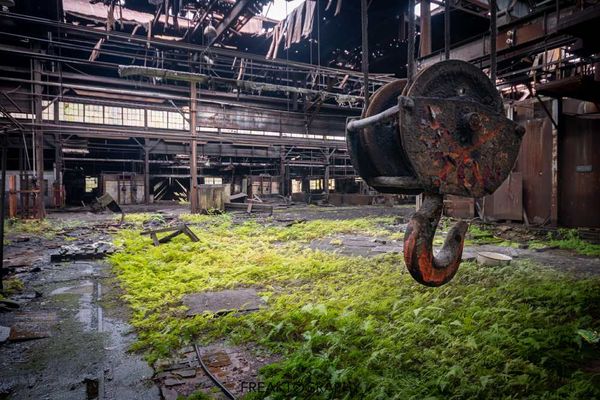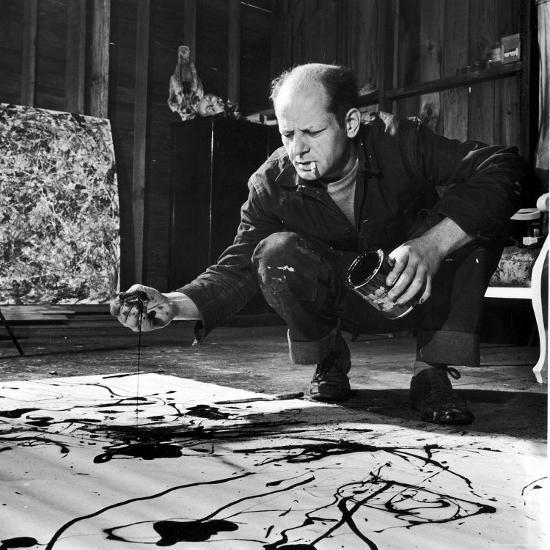by Sarah Pavlovna Goldberg
In Vladimir Putin’s world, problems can disappear. Everything is at his disposal, and everyone is disposable. But Alexei Navalny has proven that he is not of the latter type, and neither is the massive civil society movement he’s generated.
Here is a man who has triggered mass unrest by releasing a work of journalism so thorough, so scandalous, and so convincing that Putin and Russia’s ruling kleptocrats have taken to pretending he doesn’t exist, even while using all the tools in their power to take him out.
“They are trying to eliminate Navalny in various ways,” Russian dissident-artist Eric Zhelezka said to me, the day before the January 23rd protests against Navalny’s recent imprisonment. “Alexei is the only independent Russian politician who has the support of the population.”
Navalny has garnered so much mass appeal, from Russians young and old, and across the country’s 11 time zones, that he now challenges Putin more than any political figure ever has, critically changing the setting on Russia’s political stage. Putin’s Kremlin does not sit comfortably in this new scenery.
For over 20 years, Putin has been able to harness his own narrative using his state and “non-state” (wink, wink) media. Through cable television, these organs of propaganda feed viewers a tasting menu of rumours. But television is a dying format. Much to Putin’s chagrin, TV is being replaced with digital media. One of Putin’s latest hoop dreams is to disconnect from the global internet, a move that could fatally demobilize opposition. It is also within his reach.
The internet is Navalny’s platform. Upon his recent return to Russia, he was swiftly escorted to a pre-trial detention center and held under falsified charges. (On Tuesday, he was sentenced to more than two-and-a-half years of hard labor in a penal colony for fraud.) Anticipating his arrest, his team released a damning documentary on the president. In Putin’s Palace, Navalny presents to us the spoils afforded to only the mega-rich: a compound twice as large as Versailles, a border security-grade checkpoint, a hockey rink next to a helipad, a church, an amphitheater, a secret tunnel for beach access, an Italianate tea house, and more. Putin’s secret 1.3 billion dollar compound on the Black Sea coastline, realized through a government scheme that dipped into the state budget as well as tax dollars, was damning evidence to Russians resistant to his regime. The main palace has dozens of rooms, reflective of Putin’s fetishistic obsession with his own power.
Navalny, like a good chess player, is making the Kremlin scurry around the board. Anticipating the predictable trickery, Navalny has forced Putin’s administration into a stalemate. In the documentary’s introduction, he states, “We decided to publish it after I returned to Moscow, because we do not want the main character of this movie to think we are afraid of him, and that I would be telling his most dreadful secret from abroad.” The timing, meant to encourage his followers to take the fight against state corruption into their own hands once again, is an example of his tactical genius.
Before Navalny’s exposé, activists and journalists who had tried to investigate this story suffered dearly. Kate Watters, Executive Director of Crude Accountability, knows this well. Watters has worked closely with environmental defenders in the Black Sea region, which includes Krasnodar Krai, where the palace is located. “The risk in telling this story is large, both for the Navalny team and for the environmental defenders themselves,” she said. Those who tried to tell this story before Navalny “have been under scrutiny, and have been harassed by the authorities for their environmental inspection work for many years,” she added.
In 2017, environmental activist Andrei Rudomakha was brutally attacked by three masked men after filming the construction occurring onsite. The assailants repeatedly kicked him in the face, fracturing his skull and breaking his nose. The evidence he had gathered was destroyed. Rudomakha’s work, as well as information gathered by environmental defenders Watters had worked with, informed the making of Putin’s Palace. “[Navalny] has changed the narrative,” she said. “It is not just a showdown between him and Putin; it is a call for accountability now, before the world.”
Navalny has not always been an entirely palatable dissident. He was born in a military town outside Moscow in 1976, just one month after the official founding of the Moscow Helsinki Watch Group, which later became a worldwide movement, bearing witness to government repression. Navalny’s parents were loyal communists, and he was a Young Pioneer. His upbringing can be understood through his fits of discomfort with the corrupt systems and barriers of access he witnessed: observing his law school classmates bribing their professors, watching colleagues move money around at a Moscow real estate company. He came to the fore as a fiercely nationalist politician, employing xenophobic rhetoric to appeal to far-right groups.
Notable dissidents were divided on Navalny’s rise. Lyudmilla Alexeyeva, Russia’s unwavering doyenne of human rights, expressed concern that Navalny was overly macho and inexperienced. Boris Nemstov, who would be murdered by a Federal Security Service (FSB) gunman less than two years later, disagreed with Navalny’s controversial rhetoric, but he still called on Russians to support him. Navalny was an inroad, an opportunity.
Navalny’s nationalist past offers a key insight into Russia’s changing approach to dissent. A 2013 Atlantic piece outlines the docket of nationalist activities Navalny participated in while in the process of becoming Russia’s best hope for liberalization: From marching with far-right groups, to using a derogatory term for Georgians in a series of blog posts supporting Russia’s 2008 war on their land, to calling for the deportation of immigrants who came to Russia illegally from Central Asia, Navalny used existing xenophobic tropes to drive his agenda. This is something top Russia watchers such as Masha Gessen––not generally given to bouts of euphoria–– continuously glaze over. (Gessen concluded their recent article with an unusually hopeful prediction: “The name of Russia’s next president is almost certainly Navalny, or Navalnaya.”)
I spoke to Cathy Cosman, former staffer at the U.S. Commission on Security and Cooperation, and formerly the Senior Policy Analyst for the U.S. Commission on International Religious Freedom. “While Navalny has shown the corrupt and cynical Kremlin’s face to the peoples of Russia, one can only hope that his possible future government can also avoid the old Russian curse of nationalism,” Cosman said. Over her decades-long career, she has focused on issues of religious repression in Russia. In the Soviet era, she worked directly with the Moscow Helsinki Group on the issues facing those not ethnically Russian in the USSR. While Navalny is essential to the anti-Putin movement, she argues, his prior rhetoric is not to be ignored. “Russian society is poised on the edge of a new beginning, but it is too early to know its ultimate fate,” she said.
Over the course of his many years in the spotlight, Navalny has changed his tone and recalibrated his approach. He was dissatisfied with the political parties available to him, so he set out to do his own work and build his own political brand. His organization, the Anti-Corruption Foundation (known in Russia as “FBK”), serves as a resource for whistleblowers, and his political movement, “Russia of the Future,” raised millions during his prior bids for office and gained more than one hundred thousand volunteers. Whether sincere or opportunistic, this pivot from antagonism to calls for unity has widened his base, gathered momentum for his vision of democracy, and ignited Putin’s wrath.
Navalny’s corruption documentaries (of which there are many) are universally accessible, laying out facts and sources clearly, putting the power of information in the hands of all who watch. He recently introduced “Smart Voting,” an effort to put kleptocrats out of business by electing rival candidates into regional office. In a feat that, until now, seemed to be the peak of his investigative prowess, he cracked the case of the Kremlin’s unsuccessful effort to murder him with the military-grade poison Novichok, conducting an interview with the FSB agent who botched the bloody deed. Pretending to be an official writing a report for Putin on the attempted murder, Navalny tricked his assassin, Konstantin Kudryavtsev, into revealing every detail of the attempt. Through unflinching investigative journalism, Navalny has effectively transformed himself into a unifying hero in the public eye.
Dissent in Russia has a history of coming from the intelligentsia. It started with the readers, the philosophers, the people who had the luxury, education, and courage to voice their anti-state opinions. Consider the Bolshevik Revolution: Leon Trotsky’s ability to speak out about Marxist theories was due to his being from a wealthy family; Vladimir Lenin was born into a middle-class household. Stalin knew the germ of dissent started in “middle cadres,” hence his constant public denunciation of his party operatives (see: The Great Terror) and his heavy censorship of writings, which led dissident literary figures such as Mikhail Bulgakov and Anna Akhmatova to hide, or even burn, their work.
The annals of dissent in the Khrushchev Thaw are not filled by laborers, either. Andrei Sakharov, Yuri Orlov, and Valeri Chalidze were esteemed physicists. Elena Bonner was a physician, Aleksandr Solzhenitsyn a writer, Lyudmilla Alexeeva a historian, Sofyia Kalistratova an attorney, Malva Landa a geologist. Publishers and poets beyond count lent their lives to the resistance. Dissidents influenced minds and brought forth powerful change that questioned the status quo. But they were able to penetrate the impenetrable State only because they had the space and status to debunk its mythologies.
It’s clear Navalny has learned from the fates of prior dissidents—those who have been exiled, attacked, even killed. Like the Helsinki Watch Group dissidents, he generates his power through the data he’s collected and the contacts he’s made. He’s compelled millions of Russians to show up—not for him, but for a different future.
“It’s not just for the freedom of Alexei Navalny; It’s for our freedom and safety,” Nastya Umarova, a graduate of Moscow State University Journalism Program, told me after she attended the recent protests. “People want changes––changes in political work, in political faces.”
A protestor in Moscow holds up a Navalny poster with the text, “One for all and all for one.”
Sarah Pavlovna Goldberg thinks a lot about Russian politics. Follow @solidgoldsarah for her other thoughts.
*Thumbnail Image: St. Petersburg protest. Photo by Anatoly Maltsev (Shutterstock).



